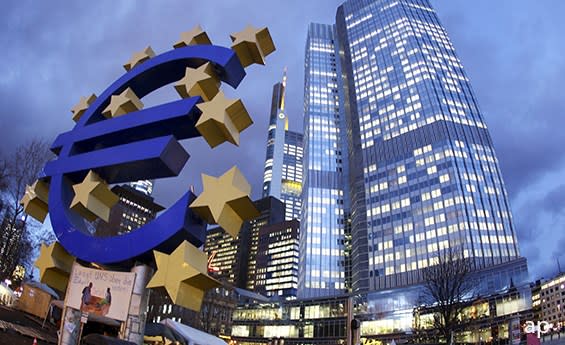What Do Rock-Bottom Rates Mean for Investors in Europe?

When European Central Bank President Mario Draghi said in September 2018 that its quantitative easing programme would be ending in 2019, stock and bond markets took that as a sign that the eurozone economy was getting back to normal.
After all, European equities had performed well in 2017 and 2018 amid optimism that the 19 countries of the currency bloc were finally coming out of the malaise suffered since the financial and Greek debt crises. The Federal Reserve raised rates four times in 2018, so the ECB was simply (belatedly) joining in the move towards tighter monetary policy.
Now, six months after QE ended in Europe, talk has surfaced of the bond-buying programme being restarted, and a potential rate cut is a very real possibility.
What does that mean for investors in the region? The idea that the Fed may start to row back on last year’s rises has already given stock markets a much-needed boost this month and some investors are pinning hopes on the ECB following suit.
Eurozone interest rates are now likely to remain at record lows of 0% until 2020 now, Draghi has admitted. The ECB president said rates would remain at rock bottom “for as long as necessary”.
The threat of deflation and trade-related concerns in the rest of the world mean that the ECB is now under pressure again to come up with the goods. Analysts say it may have run out of options.
Silvia Dall’Angelo, senior economist at Hermes Investment Management, says: “Despite a deteriorating inflation picture, the ECB has resisted markets’ expectations of aggressive easing and delivered an underwhelming package of measures.” Quite simply, she adds, the central bank has “has little ammunition left to fight low inflation”.
David Zahn, Franklin Templeton’s head of European fixed income, expects interest rates to stay on hold until 2022 as risks continue to grow: “Growth in Europe remains decent (but no more than that). Amid geopolitical uncertainty, such as Brexit and trade tensions, it seems obvious to us that almost all of the risks are to the downside.”
A Stock Market or Market of Stocks?
At the recent Morningstar Investor Conference, Columbia Threadneedle’s David Dudding made the point that is still possible for investors to profit from world-class European companies even if the wider economy is stagnating.
Lower price/earnings ratios than, say, for US tech companies, make these investment prospects more enticing. “Just because GDP growth is low, it doesn't mean you can't make money. It's a market of stocks, not a stock market.” Dudding manages Threadneedle European Select, which has a Bronze and four-star rating from Morningstar and invests in companies such as Pernod Ricard (RI).
“European companies have benefited a lot from globalisation and there are certain areas, drinks being one of them, where European companies really lead the world,” says Dudding.
The eurozone’s biggest indices, Germany’s Dax and France’s Cac, have performed reasonably well in the face of a cloudy economic outlook. The Dax is up from 10,580 points to 12,034 from the start of the year, a gain of 13%, while the Cac has risen from 4,689 points to 5,344, a similar gain in percentage terms. The S&P 500 is up 13% over the same period to 2,843 points, while the UK’s FTSE 100 has lagged with a rise of 8% to 7,315 points.
Despite those gains, investors remain cautious around European equities. Data from Morningstar Direct shows investors pulled £242 million out of European ex UK Large Cap Equity funds in April, and £3.8 billion over the past year.
European bonds are also remain unattractive: a buyer of a US Treasury would get a yield of around 2% on a 10-year bond, compared with a negative yield for German and Dutch bonds. France’s 10-year yield is a paltry 0.11%, with Italy and Greece the only countries offering comparable yields to the US.
While bond yields are still unattractive to investors and the economic picture looks murky, especially next year, European equities may continue to benefit from the recent upswing in global markets.
